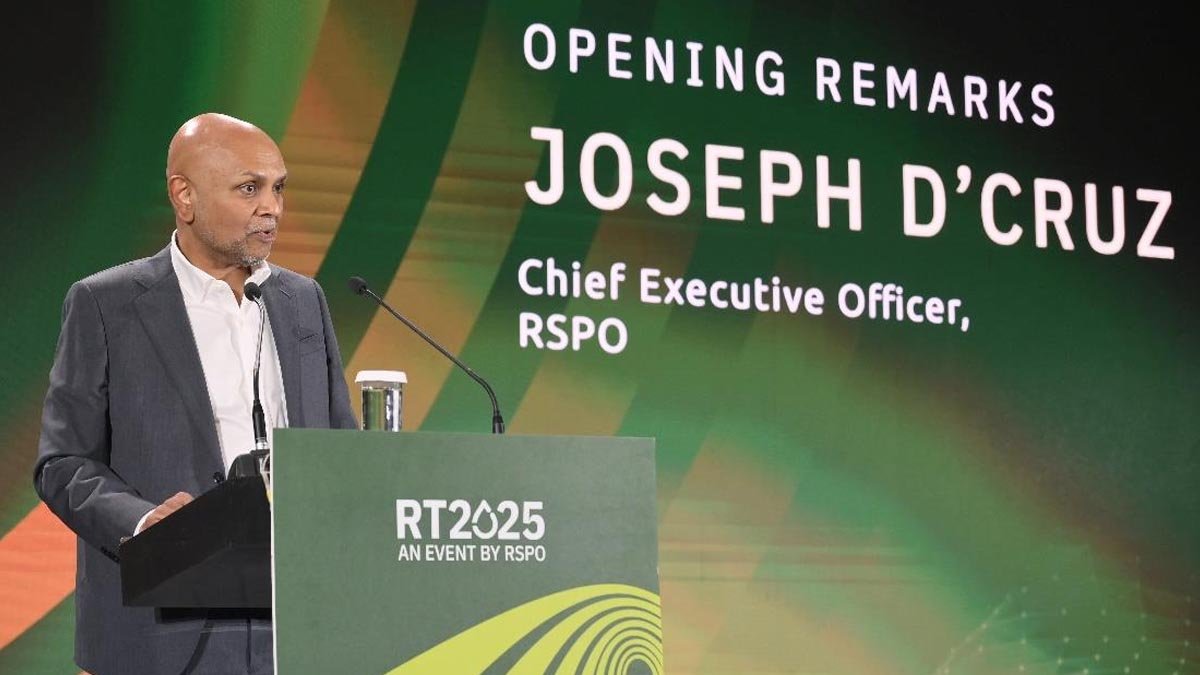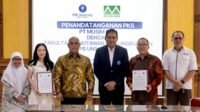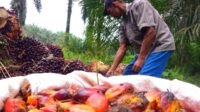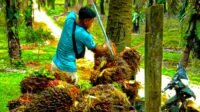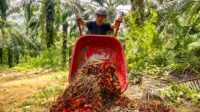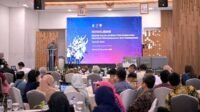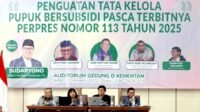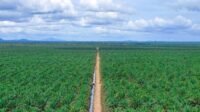PALMOILMAGAZINE, KUALA LUMPUR – From smallholder financing, ecosystem regeneration to supply chain innovation, the Roundtable on Sustainable Palm Oil (RSPO) annual conference explored scalable solutions to accelerate the palm oil industry’s sustainable transformation.
The Annual Roundtable Conference on Sustainable Palm Oil (RT2025) by the Roundtable on Sustainable Palm Oil (RSPO) convened global stakeholders to call for stronger adoption of existing technological and scientific tools to strengthen the quality, productivity, and sustainability of the sector. Experts discussed how smarter data, digitalisation, and diligence can unlock the potential of the industry, drive equity for smallholders and strengthen trade resilience amidst legislative, regulatory and geopolitical disruptions.
In a moderated conversation with Professor Simon S.C. Tay, Chairman, Singapore Institute of International Affairs (SIIA), H.E Arif Havas Oegroseno, Vice Minister for Foreign Affairs, Ministry of Foreign Affairs, Republic of Indonesia, highlighted the necessity to respect the balance between environmental issues, social justice, and economic development amidst the challenges of unilateral sustainability expectations in this shifting global landscape. “Even though the world is shaped by regions, trading blocks, and borders, sustainability is universal, and so should standards. Sustainability grows stronger when everyone is included.“
Also Read:
In her keynote address, Dr. Ravigadevi Sambanthamurthi, Chairperson of Biological, Agricultural, and Environmental Sciences Discipline, Academy of Sciences Malaysia, highlighted the role of scientific solutions in advancing the sustainable palm oil sector. “Science has already delivered breakthrough solutions – from DNA testing for seed quality to biomass utilisation in a circular economy – to advance sustainable production. Our greatest challenge today is no longer innovation, it is implementation”. A Fellow of the Royal Society, she called for a unified, industry-wide commitment, stating that technology without take-up was costing the palm oil sector in countries such as Indonesia and Malaysia as much as USD 6 billion and USD 1 billion respectively in oil palm productivity annually, while increasing smallholder vulnerability.
Smallholders spotlight
Smallholder inclusion was a central focus of the three-day dialogue. Despite comprising about
40% of the total oil palm plantation area, smallholders remain marginalised from national, regional and global markets. They face mounting challenges, including a slowdown in demand
for smallholder credits, cuts to government budgets for development funding, and disrupted trade relationships caused by shifting tariff policies.
“Smallholders have done the hard work to show they can produce sustainably, proving their commitment through the pursuit of RSPO Certification,” said RSPO CEO, Joseph D’Cruz. “Yet they are bearing a crushing burden with decreasing support. Their inclusion in the sustainable palm oil supply chain is imperative for transforming the sector.”
A collective voice from large growers to downstream actors, social and environmental NGOs, assurance and financial actors called for more diverse market incentives for RSPO Certified Independent Smallholders (ISH) to access the physical market. Discussions highlighted practical solutions such as price premiums, access to finance, risk-sharing, and long-term contracts, as potential pathways to support smallholder inclusion at a greater scale.
Speaking on behalf of smallholders during the Opening Ceremony, Pedro Seijas Cárdenas, Group Manager of the Peruvian smallholder group, Asociación de Productores Monte Alegre de Neshuya (APROMAN), asserted: “Every credit sold, every hectare certified, and every community strengthened is a reminder that sustainable palm oil is not built in boardrooms, but in the soil, under the sun, in the hands of those who cultivate hope.”
In 2024 alone, 284,188 Independent Smallholders Credits worth US$6.5 million were bought to directly benefit 116 RSPO Certified ISH groups.
Further reinforcing this commitment, a Memorandum of Understanding (MoU) was signed between Malaysia’s National Association of Smallholders (NASH), Asia School of Business (ASB) and RSPO to facilitate smallholder capacity building and access to international sustainable markets.
Certified growth, conservation and evidence-based impact
In the last year, RSPO Certification has expanded to São Tomé and Príncipe and Sri Lanka, bringing the total certified oil palm area to 5.1 million hectares across 24 countries. A total of
425,597 hectares (ha) are now conserved under RSPO Certification – an area 17 times the size
of Kuala Lumpur and 29,469 ha of riparian reserves are also set aside for protection.
D’Cruz remarked, “While certification is a milestone achievement, it is only part of the sustainability journey. The world is moving beyond measuring impact in terms of certificates and certified hectares. We must also show our success in terms of resilient communities, protected forests, and empowered farmers. We are shifting from a badge economy to a world that prioritises measurable outcomes and evidence-based impact.”
This approach was exemplified through a MoU signed between Nanjing Hongshan Forest Zoo and RSPO, aimed at promoting biodiversity conservation and sustainable palm oil awareness in China.
As part of RSPO’s commitment to inclusive dialogue, RT2025 also spotlighted the role of youth in driving innovation through YOUth @ RT2025, a new segment that brought together over 20 youth delegates to connect, learn, and lead conversations on the future of sustainability.
RT2025 also honoured members whose work exemplifies sustainable commitments. The RSPO Excellence Awards celebrated outstanding contributions across five categories: PT Dharma Satya Nusantara for Conservation Leadership; Perkumpulan Petani Mitra Harapan for the Smallholder Award; Lestari Capital for Innovation; Wild Asia Group Scheme for Communicating for Good; and AAA Oils & Fats for Shared Responsibility. (*)

